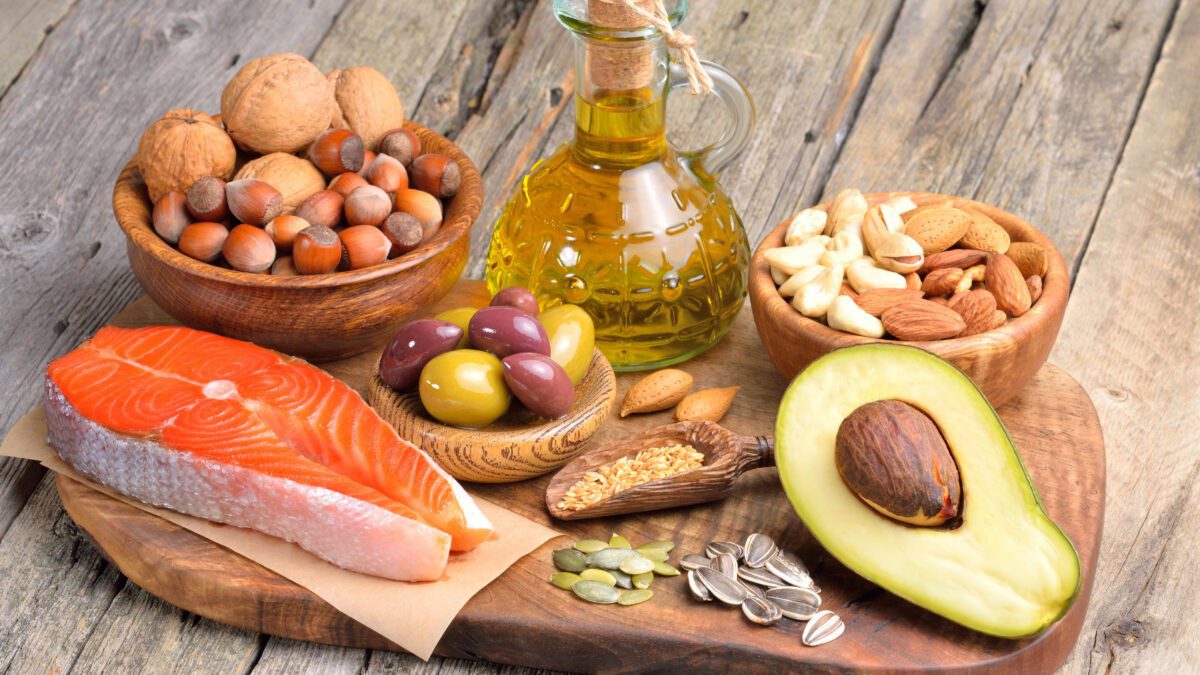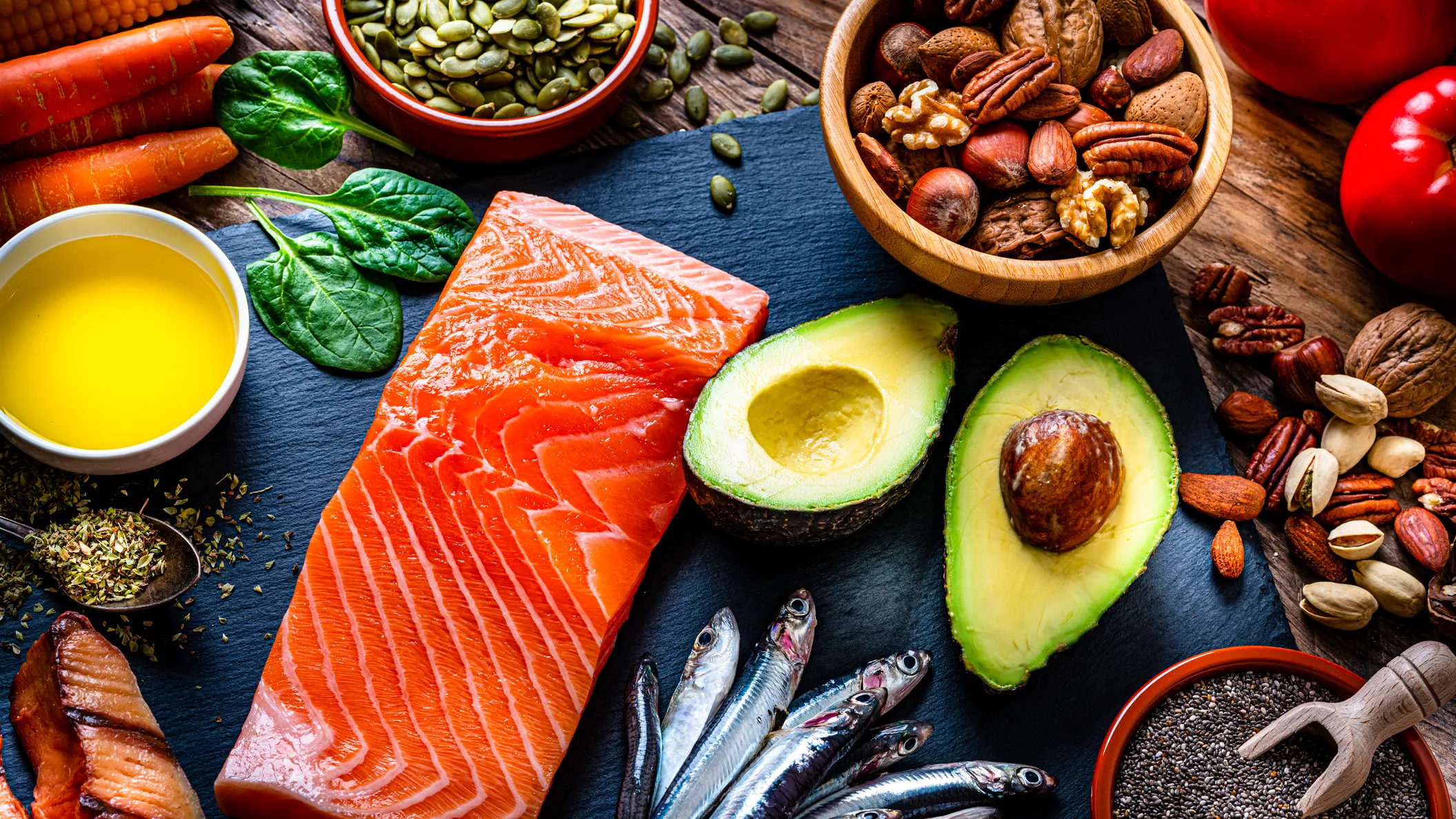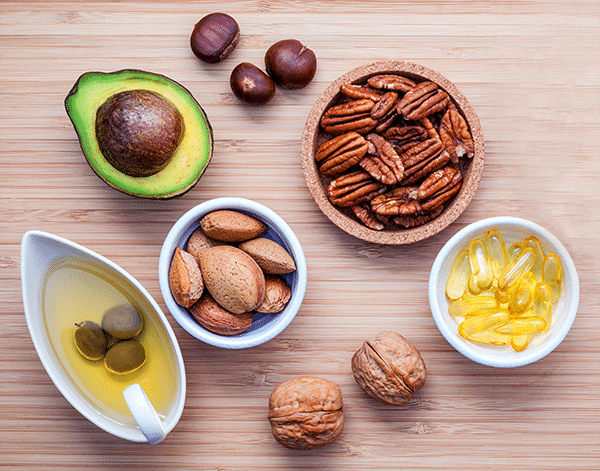 Introduction
Introduction
For many years, fats were unfairly labeled as unhealthy and something to avoid. However, modern nutrition science shows that not all fats are created equal. Healthy fats are essential for the body, providing energy, supporting cell growth, protecting organs, and helping the body absorb vital nutrients. Unlike trans fats and excess saturated fats, healthy fats promote heart health, boost brain function, and improve overall well-being. In this article, we will explore the importance of healthy fats, their benefits, food sources, and how to include them in a balanced diet.
What Are Healthy Fats?
Healthy fats are types of dietary fats that have positive effects on health when consumed in moderation. They are mainly classified into two groups:
-
Monounsaturated Fats (MUFA): Found in foods like olive oil, nuts, and avocados. These fats help lower bad cholesterol (LDL) while maintaining good cholesterol (HDL).
-
Polyunsaturated Fats (PUFA): Found in fatty fish, flaxseeds, walnuts, and sunflower seeds. These fats include essential omega-3 and omega-6 fatty acids that the body cannot produce on its own.
In contrast, trans fats and excessive saturated fats can increase the risk of heart disease and should be limited.
Nutritional Qualities of Healthy Fats
Healthy fats provide a wide range of nutrients and benefits:
-
Essential Fatty Acids (Omega-3 & Omega-6): Crucial for brain function, heart health, and inflammation control.
-
Vitamin Absorption: Aid in absorbing fat-soluble vitamins A, D, E, and K.
-
Energy Source: Provide 9 calories per gram, offering long-lasting energy.
-
Cell Structure: Contribute to the formation of cell membranes.
-
Hormone Regulation: Play a role in hormone production and balance.
 Health Benefits of Healthy Fats
Health Benefits of Healthy Fats
1. Heart Health
Healthy fats reduce bad cholesterol levels, regulate blood pressure, and lower the risk of heart disease and stroke. Omega-3 fatty acids, found in fish like salmon and mackerel, are especially protective for cardiovascular health.
2. Brain Function and Mental Health
The human brain is nearly 60% fat, and it needs healthy fats to function properly. Omega-3 fatty acids enhance memory, concentration, and learning while lowering the risk of depression and cognitive decline.
3. Weight Management
Contrary to myths, healthy fats can aid in weight management. Because they provide satiety, they help reduce overeating and balance blood sugar levels.
4. Reduced Inflammation
Polyunsaturated fats, especially omega-3s, help fight chronic inflammation that contributes to conditions like arthritis, diabetes, and heart disease.
5. Healthy Skin and Hair
Healthy fats nourish the skin, improve elasticity, and prevent dryness. They also support stronger, shinier hair.
6. Support for Pregnancy and Child Development
Omega-3 fatty acids are critical for fetal brain and eye development, making healthy fats essential for expectant mothers.
Best Sources of Healthy Fats
Plant-Based Sources
-
Olive oil – Rich in monounsaturated fats and antioxidants.
-
Avocados – Packed with MUFAs, fiber, and potassium.
-
Nuts (almonds, walnuts, cashews) – Provide protein, fiber, and omega-3s.
-
Seeds (chia, flax, sunflower) – Great sources of plant-based omega-3s.
-
Coconut oil (in moderation) – Contains medium-chain triglycerides for quick energy.
Animal-Based Sources
-
Fatty fish (salmon, sardines, tuna, mackerel) – High in omega-3 fatty acids.
-
Eggs – Provide healthy fats along with protein and vitamins.
-
Grass-fed dairy – Contains conjugated linoleic acid (CLA), beneficial in small amounts.
How to Incorporate Healthy Fats in Your Diet
-
Use olive oil or avocado oil for cooking instead of refined vegetable oils.
-
Add nuts and seeds as snacks or salad toppings.
-
Replace creamy dressings with homemade vinaigrettes using olive oil.
-
Include fatty fish in your meals 2–3 times per week.
-
Spread avocado on whole grain toast as a healthy breakfast option.
-
Choose nut butters (without added sugar or hydrogenated oils).
Healthy Fats vs. Unhealthy Fats
-
Healthy Fats: Monounsaturated and polyunsaturated fats (olive oil, fish, nuts, avocados).
-
Unhealthy Fats: Trans fats (processed foods, margarine) and excess saturated fats (fried foods, fast food).
The key is balance—limit unhealthy fats while incorporating more healthy fats into everyday meals.
Potential Considerations
-
Moderation Matters: Even healthy fats are calorie-dense, so portion control is important.
-
Allergies: People with nut or seafood allergies should seek alternative sources of healthy fats.
-
Quality Counts: Choose unrefined, cold-pressed oils and minimally processed foods for maximum health benefits.


You must be logged in to post a comment.